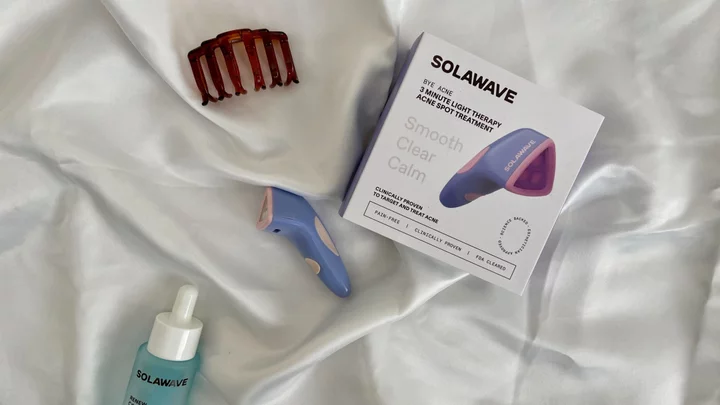Divisive views on the Covid-19 vaccines haven't shaken the broadly favorable views of routine childhood vaccines, a new survey suggests.
Nearly nine out of 10 adults in the US say that the benefits of the measles, mumps and rubella (MMR) vaccines outweigh the risks -- a share that's remained unchanged since before the Covid-19 pandemic, according to data published Tuesday by the Pew Research Center.
Only about six out of 10 adults say the same about the Covid-19 vaccines.
For the MMR vaccines, most adults say that the preventative health benefits are high and the risk of side effects is low. But for the Covid-19 vaccines, most rate the health benefits low and the risk level medium to high.
The findings are based on responses from a representative sample of nearly 11,000 adults from mid-March, three years into the Covid-19 pandemic.
Vaccine hesitancy may have ramped up during the pandemic, but it's not a new phenomenon, experts say.
"We've seen it with other vaccines because they're new technology. Sometimes we see it because parents underestimate the amount of disease that's really out there that they should be worried about. And the third way is when our messaging about the vaccine is confusing," said Dr. Buddy Creech, professor of pediatric infectious diseases and director of the vaccine research program at Vanderbilt University Medical Center.
The Pew survey data shows that those who didn't get vaccinated against Covid-19 have less positive views of the MMR vaccines in general, and there's a strong link between Covid-19 vaccination status and the likelihood a person will get the flu shot.
Still, the findings suggest that adults in the US "make important distinctions across vaccines."
Even among adults who did not get the Covid-19 vaccine, about three-quarters say that when it comes to the MMR vaccines, the overall benefits outweigh the risks. About 70% of parents who didn't get the Covid-19 vaccine said that their child has gotten the MMR vaccine.
There are a few key distinctions between the Covid-19 vaccines and the MMR vaccines that could affect perceptions, Creech said.
The Covid-19 vaccines were new and highly politicized, compared with the MMR vaccines that have been around for generations.
"We appreciate and recognize that many of the vaccines that are in the childhood schedule have been there for decades. Our grandparents got it, our parents got it, we got it. They've become part of the armory of ways that we can prevent disease," he said.
The side effects of the Covid-19 vaccine were also more front-and-center.
"Once you get vaccinated against measles, you're good for the rest of your life and we don't have to keep vaccinating you every year or every five years," he said.
"For the majority of the adults, it's probably been decades since they've had an MMR vaccine, or years since their child had one. And as the days go by, we don't remember those feelings of achiness (or other side effects) as much."
Despite the steady trust in MMR vaccines overall, there are some signs of concern -- particularly around requirements for children to be vaccinated to attend school.
An earlier report from the US Centers for Disease Control and Prevention found that required vaccine coverage among kindergarteners dropped for a second year in a row. For those enrolled in the 2021-22 school year, coverage against measles was the lowest it's been in more than a decade.
Most adults still support school vaccine requirements, but there was a significant drop from 82% to 70% over the past four years, according to the Pew survey. The shift was driven mainly among Republicans, now with more than four out of 10 saying that parents should be able to decide whether to vaccinate their children.
The CDC suggests that children get their first dose of MMR vaccine around age one. Nine other vaccines are recommended by 15 months of age, with multiple doses required for many.
However, about half of parents with children under 5 worry about whether all childhood vaccinations are necessary.
"This type of vaccine hesitancy is a luxury that we have in the West because these diseases, like measles and rubella, have largely been reduced," Creech said.
But it's critical to meet parents where they are, including being able to explain the biology of the immune system and why hesitations about overwhelming the immune system don't need to be a concern.
"The one-size-fits-all approach doesn't really work," he said. "We've really got to listen to what the individual concerns are and be able to speak to that based on the data that we have and the experience we had with those vaccines."









